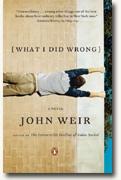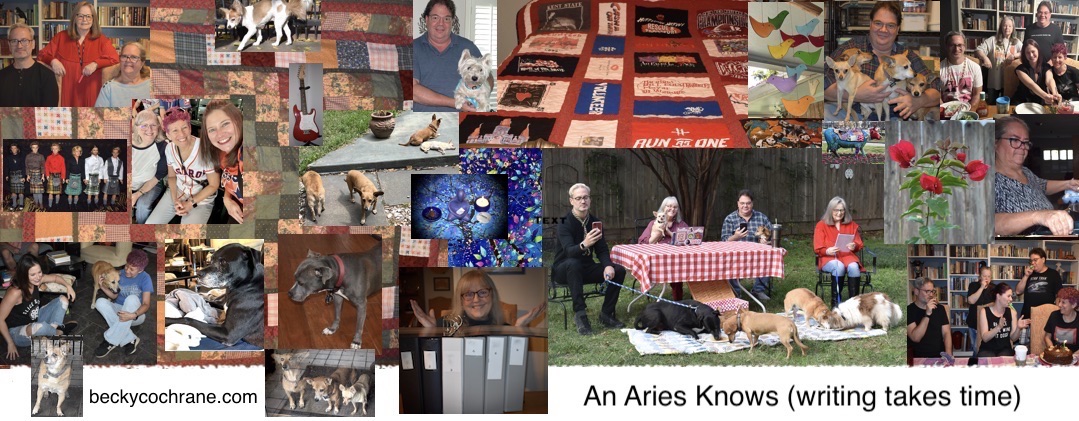
If you’ve been a caregiver to people you love who died because of AIDS, then you know that a softly lit goodbye in a quiet hospital room, with you hovering over the shell of a person you once knew as he stoically yet weakly articulates some profundity that at once skewers the heartless and forgives the compassionate, is probably a Hollywood version of your reality.
This isn’t to say that I haven’t witnessed and been part of great stoicism, tremendous compassion, and tender goodbyes. But that’s only one chapter of any story, and along with it come the realities that provide a theme of John Weir’s WHAT I DID WRONG: rage and shit. Among other things, Weir’s is an AIDS novel, covering some part of the eighties and the nineties and ending just after Labor Day in New York City in 2001–that is, before a fresh horror would refocus energy and reshape the dilemma of dealing with the financial needs of the worst plague (so far) of our time.
At some point early in Weir’s novel, I was jarred when his narrator Tom says of a friend that Zach lived in what Zach called “Hell’s Kitchenette.” Hmmmm, I thought, that’s what writer David Feinberg called his Midtown neighborhood of Hell’s Kitchen. So I mentioned to Tim (who read the book before loaning it to me), “I wonder if Zach is based on David Feinberg,” whereupon Tim told me what everyone else familiar with the book already knows: YES.
Since David Feinberg was my introduction to gay-themed fiction (as well as AIDS-themed fiction), and remains one of my favorite writers, there was a certain poignant discomfort in being allowed into this fictional version of his disease and death.
David/Zach spews rage and shit, not attempting to make his disease comfortable for anyone, friend or stranger. Zach, a published author, says, about the possibility of meeting Tom Hanks:
I’ll autograph a book for him, and I’ll say, “Oh, Mr. Hanks, now that you’ve gotten an Oscar for playing a homosexual in Philadelphia who dies of a disease that he must have gotten from a toilet seat because the closest he comes to having sex with a man is to set aside his popcorn in a movie theater, maybe you’d like to read how people really get AIDS and what their parents really say and how often the parents turn out to be Joanne Woodward standing in the corner of the hospital room with an I-always-vote-for-liberals expression of maternal warmth spread across their loving faces.” Then I’ll give him the book and say, “That’ll be nineteen dollars and ninety-five cents,” which, he’d better not bitch, because it’s a discount.
I know well the rage and shit of a person with AIDS. I know, as does narrator Tom (and so probably, John Weir), what it’s like to have my daily life and all thought, awake or asleep, taken over by the need to deal with the physical consequences of either opportunistic infections or AIDS drugs, or to have rage turned on me because… mostly because I was there. You stand near a river of rage and shit and you’re going to get some on you.
I’m sure there are many interpretations of what Weir’s title means, but I was reminded of Ordinary People, when the psychiatrist asks the teenage boy who survived the boating accident that killed his brother, what was the one wrong thing that he (the surviving brother) did. The boy’s answer: He held on; he stayed with the boat; HE LIVED.
Unless you’re Mother Teresa (and even she probably wasn’t), when death stops the river of rage and shit, you’re left trying to deal with numbness, anger, guilt, love, relief, survival, hatred–and not just toward Reagan/Bush and Company, but toward the raging, shitting monster who robbed you of your friend.
That’s not my single AIDS experience, but it is one of them, and so this novel became my fellow traveler. And AIDS rage and shit are not the only things this novel is about as Tom the narrator tries to figure out how he got to where he is and why he loves who he loves and what makes the act of breathing every day something he’s still choosing.
Since finishing the novel, I’ve read reviews of it. Some reviewers say not much happens. Some can’t connect with Tom. Some don’t like the non-linear narrative. But I think it’s an astounding novel, somewhere between the more romantically tragic PLAYS WELL WITH OTHERS and politically-underscored THE LINE OF BEAUTY, two others in my library of AIDS/gay-themed novels which I respect tremendously.
I’ll deal with John Weir’s well-written literary rage and shit any time because to me, it’s truth. Disturbing, enlightening, clever, maddening, hurtful, witty, compelling truth. Just like real life.

i’ve gotta read this book now.
It’s excellent.
i’ve already asked my library to save it for me. 🙂
Thanks for posting this, Becky. I’ll have to check it out. I have about 80 pages left of A Coventry Christmas — LOVING it! I’m also reading The Line of Beauty; funny you mentioned that book. Btw: did you see the BBC mini-series of The Line of Beauty? It was great.
No, I didn’t see it. Now that you’re reading the novel, which do you think is better, the novel or the miniseries?
And thank you for letting me know you’re loving Coventry Christmas. I’m so glad!
I’m just started reading The Line of Beauty. From what I can tell, the book’s richer in detail. (Naturally.) But the adaptation to the screen is quite good. It really captures the nuances of the novel.
I’m really close to being done with Coventry Christmas. I have laughed out loud so many times. Your line about the drummer boy song was a hoot: “Just play your damn drum and shut up, kid.” What’s funny is I did a choral arrangement (men’s choir) of THE LITTLE DRUMMER BOY for Warner Bros.
And my parents had ’70s Avacado green kitchen appliances. I vividly remember an ice chipper that color.
Also, my mom’s fond of saying, “If you can read, you can cook.” Too cool that you have that in your novel. I once said that to a guy and he shot that theory down. Seeing how my mom firmly believes this, it kinda made me mad that this Mr. Know-it-all was dissin’ my mom like that. In keeping with my nature though, I didn’t say anything back. Just got silent and stayed wounded. In fact, that was sort of a turning point when I no longer felt like he was a “safe person” in my life, like I couldn’t be myself around him. Anyway!
Yes, loving your book. I’ll probably finish it tonight. I’ve had my nose in it all day.
As you probably know already, John Weir is a professor at Queens College/CUNY, which is where I am currently finishing my BA. I’ve yet to take a class with him though because he mostly teaches graduate courses. I’m tempted to hang around for a Master’s degree just to take a class with him!
i just finished reading this the other night.
really good.
i liked that it was the gritty, sad stuff that people don’t like to talk about.